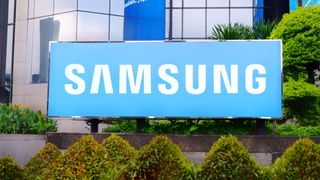After Nvidia, Samsung vows to abandon consumer focus and concentrate on lucrative enterprise market instead — surge in HBM, enterprise SSD, DDR5 server memory chip expected to drive margins
AI demand is leading to a pivot for profit

Nvidia has transformed into an AI superpower, becoming the third most valuable company in the world off the back of it, so it's perhaps no surprise other tech giants are looking on in envy and shifting their focus to follow suit.
During its recent earnings call, Samsung reported a consolidated operating profit of $4.8 billion in Q1 - a tenfold increase YoY - and company executives revealed a change in focus going forward.
The plan is now to concentrate on producing HBM and DDR5 memory and high-capacity SSD chips for the enterprise market, rather than targeting consumer PCs and mobile devices.
Meeting demand
"We plan to increase supply of HBM chips in 2024 by more than threefold versus last year," Kim Jae-june, Samsung’s memory business vice president, said on the call, reported the Korea Economic Daily. “We have already completed talks with our clients on this year's supply of HBM chips. In 2025, our HBM chip production will double from this year. Our talks on the 2025 volume with our customers are also going well.”
Samsung, currently ranked 23 in the world, has already invested heavily in HBM but currently trails behind its archrival, SK Hynix, in this area. SK Hynix recently announced plans to construct the world’s largest chip factory and has begun a partnership with Taiwanese foundry TSMC to produce HBM4.
Samsung said it anticipates a 50% increase in server DRAM production in Q2, and double output of server SSD in terms of bit growth. The company believes robust demand for AI chips will continue and stretch chip supplies throughout the year.
The South Korean tech giant also revealed it will commence mass production of its 8-layer HBM3E chips this month.
Are you a pro? Subscribe to our newsletter
Sign up to the TechRadar Pro newsletter to get all the top news, opinion, features and guidance your business needs to succeed!
More from TechRadar Pro

Wayne Williams is a freelancer writing news for TechRadar Pro. He has been writing about computers, technology, and the web for 30 years. In that time he wrote for most of the UK’s PC magazines, and launched, edited and published a number of them too.
